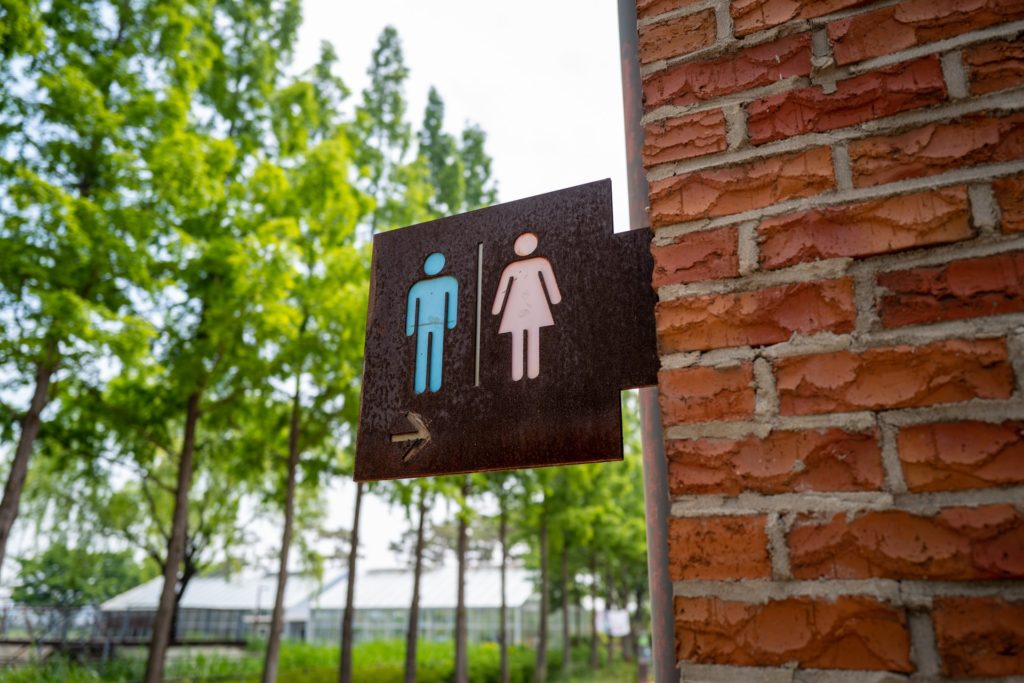The majority parties in the Brussels Parliament have drafted a resolution asking the government to tackle the lack of free, accessible and clean public toilets in the city.
“There aren’t enough free, accessible bathrooms in the public space in Brussels,” Member of Parliament Soetkin Hoessen (Groen), who co-sponsored the resolution, told The Brussels Times. “It’s a real problem.”
Hoessen explained that the issue is about more than just being able to use a toilet, it’s about equal access to public spaces for women and families, and the right to basic hygiene for the homeless.
The need for more public toilets is great everywhere in Brussels, Hoessen said, but especially for these groups.
“To give a concrete example, if you’re a woman who wants to go shopping in Brussels, but you’re on your period and you know there’s no easy access to safe, public bathrooms, that can be very dissuasive.”
She pointed out that there are frequently urinals for men, but fewer public toilets for women or children, which results in the public space being less accessible for women than for men.
“The lack of toilets for women clearly shows that our public space is still designed for men. This isn’t appropriate,” Hoessen said.
Brussels’ lack of accessible, clean toilets became clear during the coronavirus pandemic when restaurants were closed, leaving residents and visitors to the city with few places they could go in order to use a toilet.
The issue was given further public attention after three young men cleaned a Brussels public toilet for a school project and created a video showcasing how filthy it was.
Related News
- Hospital food is making you sick, Belgian study shows
- Plane makes emergency landing after passenger refuses to leave toilet
For the city’s homeless population, Hoessen says free public toilets are “an important condition for a dignified life.” At the moment, the responsibilities for maintaining public toilets are spread across different administrations and authorities.
The majority parties (Groen, Défi, Ecolo, PS, Open VLD, one.brussels-Vooruit) are asking the government to map out where the public toilets are and publicise this more widely. They then ask for the network to be expanded in cooperation with all relevant public and private stakeholders.
Efforts are already being made on a local level, such as in the City of Brussels where the city council has for several months been working on a network of improved, clean toilets.
Entrepreneurs in the neighbourhood who open their toilets to passers-by free of charge can also receive a payment in exchange for maintaining them, which MPs say is an important step forward at the local level.
“But we can’t depend entirely on private actors,” said Hoessen.
The majority parties in Parliament are asking that the government consider the condition and number of public restrooms, before setting a benchmark based on other European cities and improve the public amenity.

